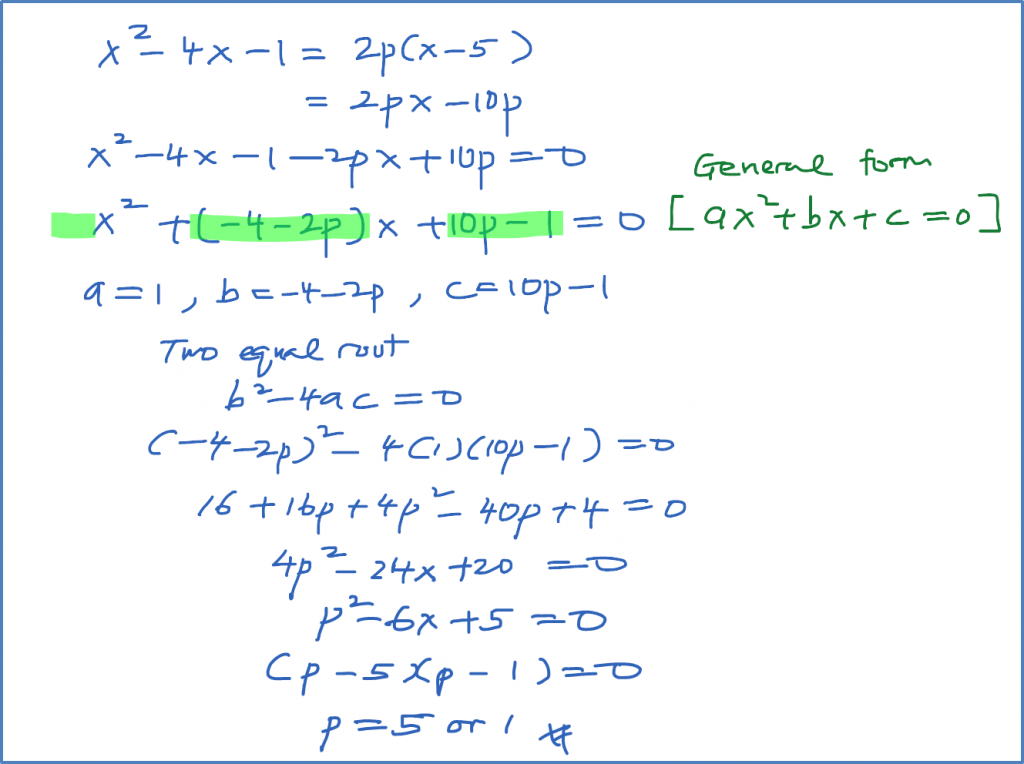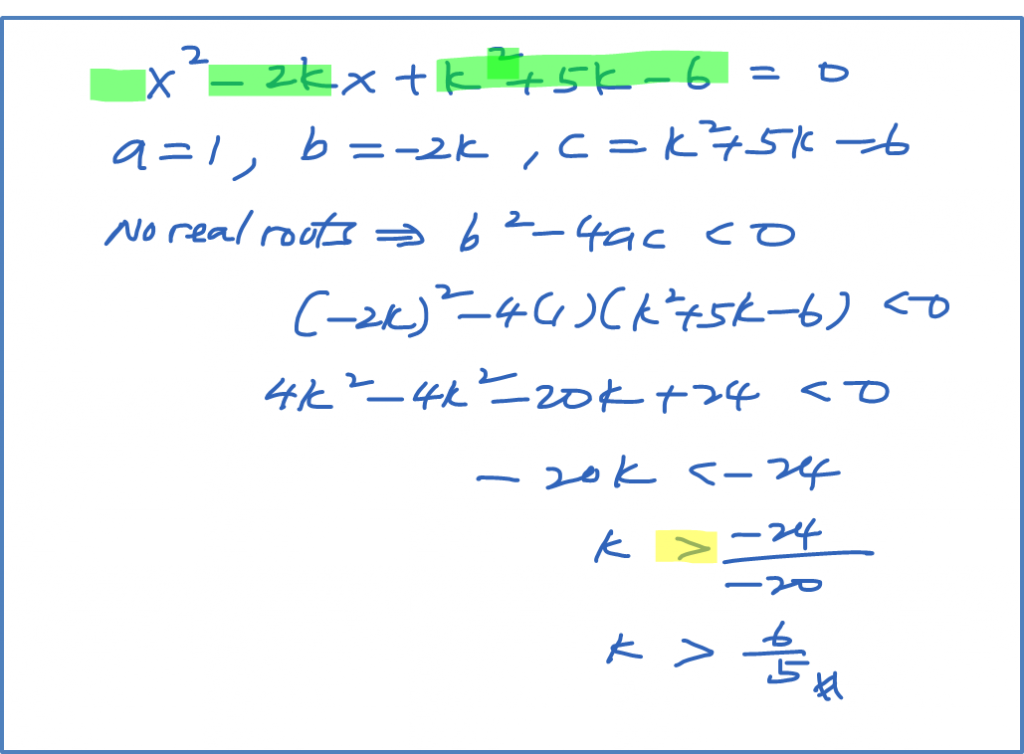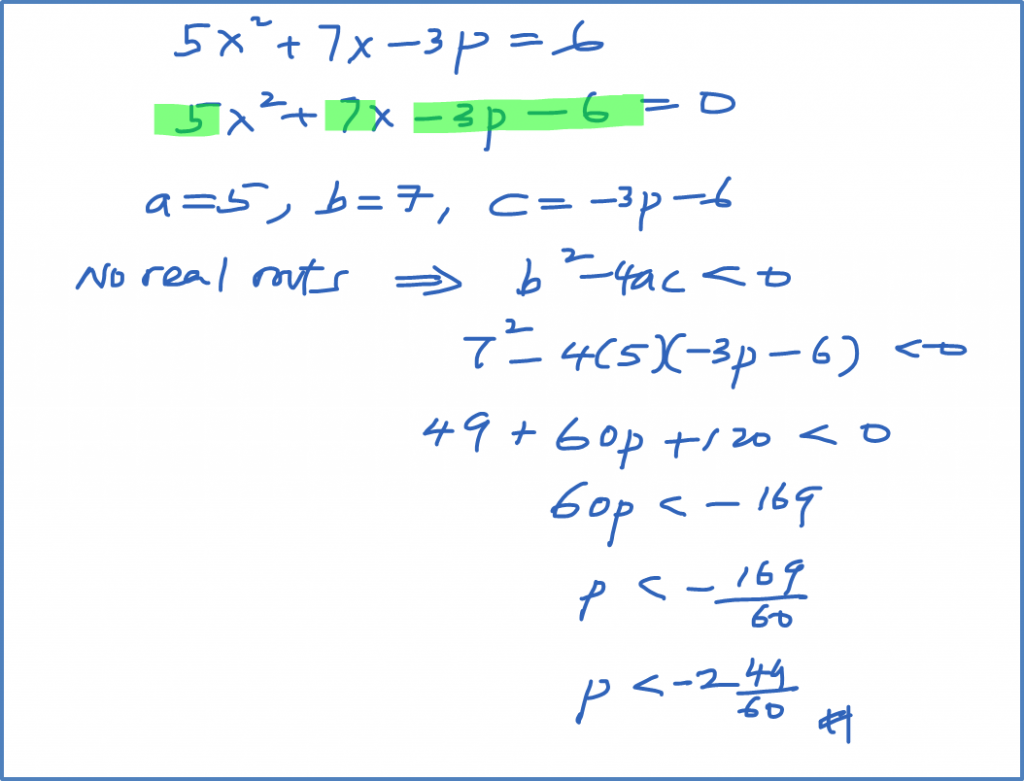Question 10:
The quadratic equation , where p is a constant, has two equal roots. Calculate the possible values of p.
Solution:

The quadratic equation , where p is a constant, has two equal roots. Calculate the possible values of p.
Solution:

Question 11:
Find the range of values of k for which the equation has no real roots.
Solution:

Find the range of values of k for which the equation has no real roots.
Solution:

Question 12:
Find the range of values of p for which the equation has no real roots.
Solution:

Find the range of values of p for which the equation has no real roots.
Solution:
